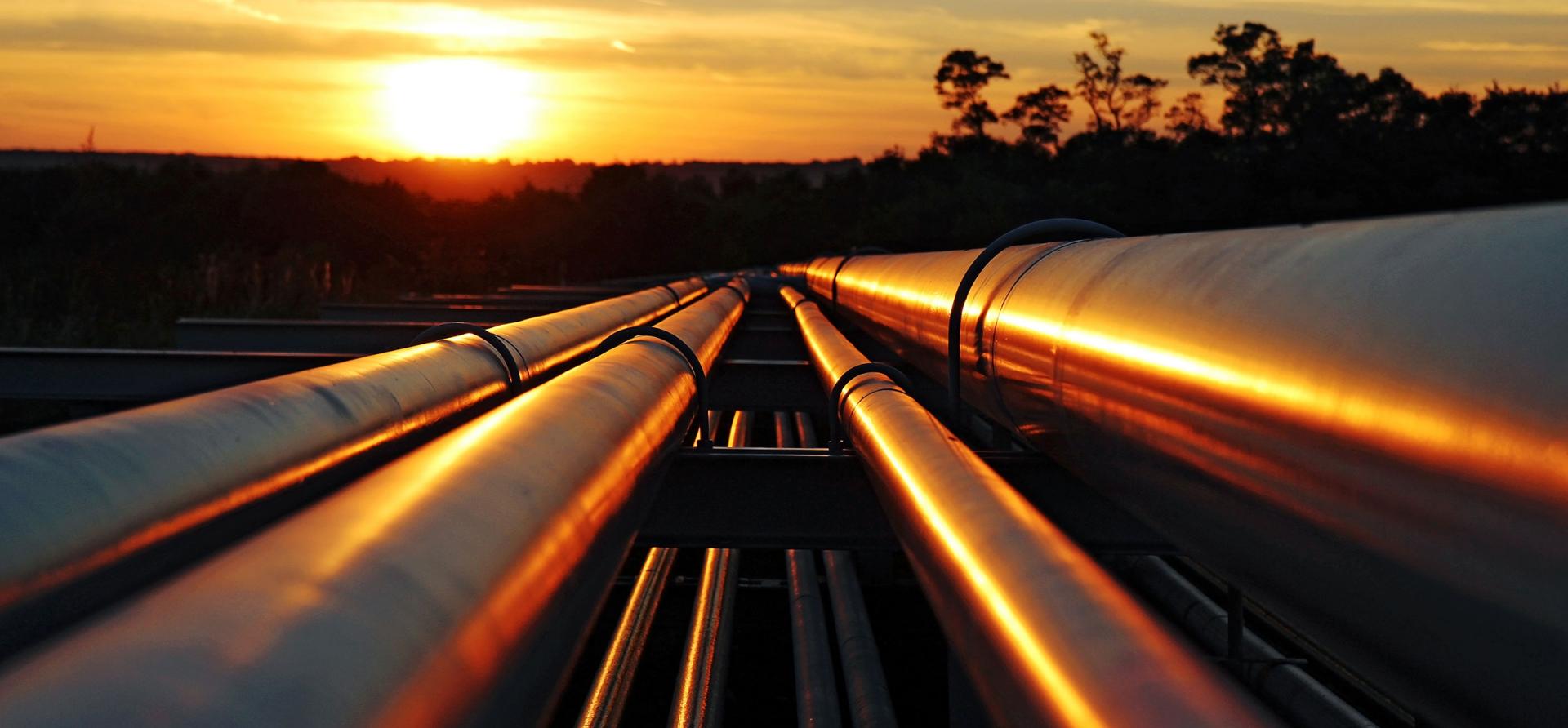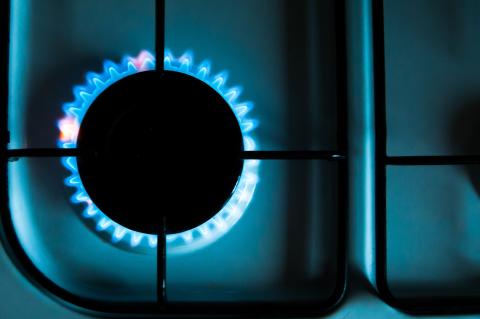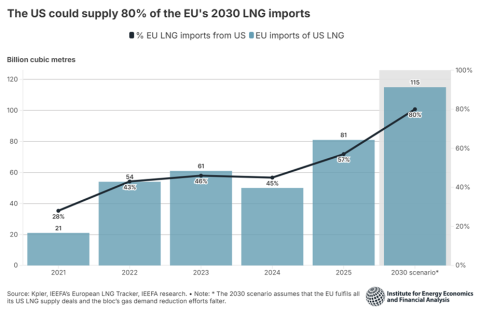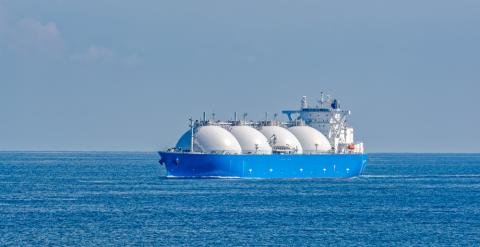Comments to the Federal Energy Regulatory Commission on MVP Southgate Extension pipeline
Download Full Version

Key Findings
A request by the developers to extend the deadline for building the Mountain Valley Pipeline Southgate Extension would mean the latest environmental impact statement would be six years old when the pipeline begins operation
Conditions for the pipeline project have changed significantly since the original certificate of public convenience and necessity was issued in 2020
The environmental impact statement does not consider new research into methane leakage and greenhouse gas emissions from natural gas
RE: Mountain Valley Southgate Extension Project Docket No. CP19-14-002 Comments on Request for Extension to construct proposed MVP Southgate Extension pipeline
The Institute for Energy Economics and Financial Analysis (IEEFA) provides the following comments for your consideration regarding the request submitted by Mountain Valley Pipeline, LLC for an extension of the deadline to construct its proposed MVP Southgate Extension pipeline.
The Federal Energy Regulatory Commission (FERC) issued the Certificate of Public Convenience and Necessity for the MVP Southgate Extension Project—which would entail construction of about 73 miles of 24-inch and 16-inch-diameter pipeline, a compressor station, and associated facilities to move gas from a point near the City of Chatham, in Pittsylvania County, Virginia, and a delivery point near the City of Graham in Alamance County, North Carolina—on June 18, 2020. The 2020 order required completion of construction by June 18, 2023. The final Environmental Impact Statement (EIS) for the MVP Southgate Extension project was issued on February 14, 2020, more than three years ago. The requested extension to June 18, 2026 would allow the project to be built and launched more than six years after the EIS was completed.
Conditions for the project—and possibly even the project itself—have changed significantly since the original certificate was granted.
First, Equitrans Midstream, the primary developer of the project, announced in its report on first quarter 2023 results that it is reconsidering the project’s design, scope and timing, stating:
“The MVP JV continues to evaluate the MVP Southgate project and is focused on active negotiations with the shipper and a prospective customer regarding refining the project's design, scope and/or timing in lieu of pursuing the project as originally contemplated.”
This raises questions regarding the costs of the ultimate design, which may affect its value for customers of the Public Service Co. of North Carolina—a subsidiary of Dominion Energy that is expected to purchase gas from the project. Changes in design also could affect the environmental impact of the project. Design issues may arise from problems obtaining property easements for the pipeline. In October 2022, Mountain Valley Pipeline LLC voluntarily withdrew an action for eminent domain involving tracts of land in Rockingham, Guilford and Alamance counties in North Carolina. The changes should be disclosed and evaluated.
Second, evaluations of greenhouse gas emissions from the pipeline itself as well as from the upstream gas supply must consider new research indicating that natural gas has similar greenhouse gas emissions impacts to coal, and estimates of methane gas leakage from pipeline systems may significantly understate the risk. A new peer-reviewed study finds natural gas, even in a gas system with a leakage rate as low as 0.2%, is “on par” with 1.5% sulfur coal scrubbed at a 90% efficiency rate, with no coal mine methane over a 20-year period. The Environmental Protection Agency (EPA) relies on a model for estimating methane emissions from oil and gas operations, but several studies have demonstrated the model falls well short of identifying methane emissions consistent with observations in the field. A 2022 study published in Environmental Science & Technology, reporting the results of a basin-wide airborne survey of methane in the New Mexico Permian Basin, found methane emission levels to be 6.5 times higher than the EPA model would predict. A 2021 Stanford University study measured methane levels at rates 1.5 to two times higher than the EPA model would predict, and noted unintentional leaks were responsible for almost half of all methane emissions in the oil and gas sector.
Third, the substantial increase in exports of liquified natural gas (LNG) appear to have placed upward pressure on domestic gas prices, and this impact is likely to increase as more LNG export facilities come online. These dynamics were affected in part by international energy systems disruptions resulting from the Russian invasion of Ukraine, which began in February 2022, as well as Russian manipulation of European gas markets in the months leading up to the invasion.
FERC should examine the extent to which higher domestic natural gas prices, passed along to the consumer, would affect the evaluation of the MVP Southgate Extension’s impact on the public interest, given the alternative of increasingly cheaper renewable energy sources. Passage of the Inflation Reduction Act of 2022, as well as the Bipartisan Infrastructure Law of 2021, can reasonably be expected to further enhance renewable energy economics.
FERC’s regulations require the agency to set a deadline for completion of construction and making a project “available for service.” The commission has stated the purpose of setting construction deadlines is to diminish “the potential that the public interest might be compromised by significant changes occurring between issuance of the certificate and commencement of the project,” and “to ensure that the facts, analysis, and rationale regarding a particular proposal do not grow stale.” FERC also has stated that all extension requests are considered on a case-by-case basis. Although FERC’s notice asserts that the review of this extension request will focus on whether the company has demonstrated good cause to grant the extension and will not consider arguments that “relitigate the issuance of the certificate order,” FERC should not pre-judge the issue of staleness here. The extension request for the proposed MVP Southgate Extension pipeline should be given closer scrutiny.
The information on which FERC relied in granting the certificate has grown stale.
As a final note, the MVP Southgate Extension Project depends on construction of the Mountain Valley Pipeline, which is the mainline system the Southgate project would extend. At this time, despite a federal legislative mandate passed as part of the negotiated debt ceiling package requiring permit approvals for the Mountain Valley Pipeline and barring appeals, the future of the mainline system remains uncertain. A Fourth Circuit appeals court panel on July 10 and July 11 granted motions to stay construction while it considers legal challenges to the legislative mandate and federal agency decisions. Mountain Valley Pipeline, LLC has asked the U.S. Supreme Court to review the issue as an emergency proceeding. The outcome is not known as of this writing.
Thank you for your consideration of these comments.















